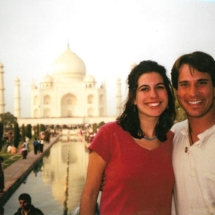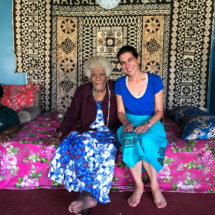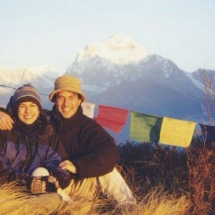“It has not been very linear, but it makes sense to me.”
That’s how Julie Ivker Dubin ’90 describes her professional journey since she left CA more than 30 years ago.
When she talks about the career choices she has made, she uses the same words frequently: “fun, curiosity, passion, love.” Her work has taken her around the world to Ecuador, Peru, Costa Rica, Tanzania, Cambodia, China, Canada, Fiji, and Mexico.
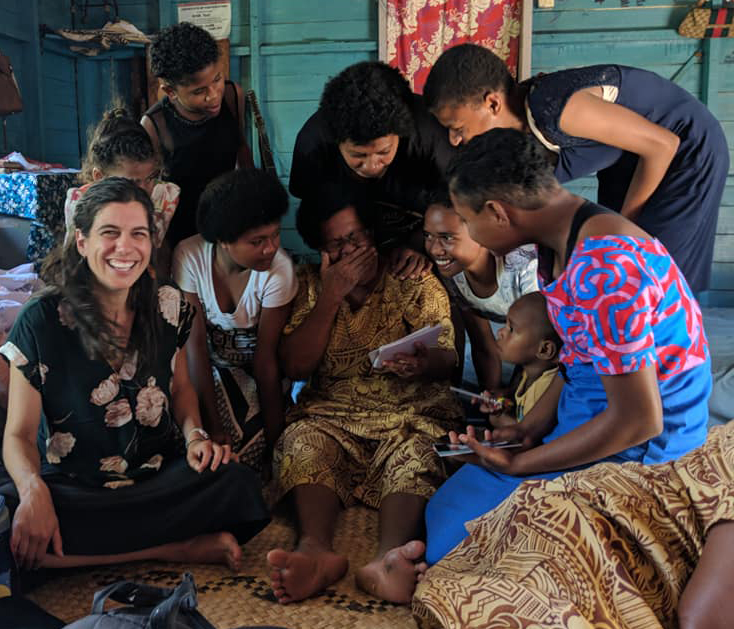
Dubin credits her years at CA with launching her on this career path by showing her the value of service, inspiring her to care about global issues, teaching her to solve problems, and whetting her appetite for experiential and environmental travel. All those skills have served her well every time she has taken on a new challenge.
She strikes you as a person who gets the job done—even when it takes a machete.
Ecotourism pioneer
Dubin graduated from Duke University in 1994 with a degree in Environmental Studies and a clear-eyed goal.
“I was passionate about making a difference by connecting people with the environment through ecotourism,” she says. “It was a relatively new concept and a unique way to bring people with resources to vulnerable places in interesting parts of the world.”
She took a job as an ecotourism guide in Ecuador, even though it meant that she and the tour groups would sometimes need armed security as they explored the Amazon.
“I felt very safe, but it was not without risk,” she says. “I’m so proud of myself that I did that job.
It’s really indicative of who I am. I love to learn, and I’m an extremely curious person.”
In Ecuador, she provided experiences for visitors who wanted to see wildlife and an intact ecosystem. In turn, she watched resources flow into communities in need.
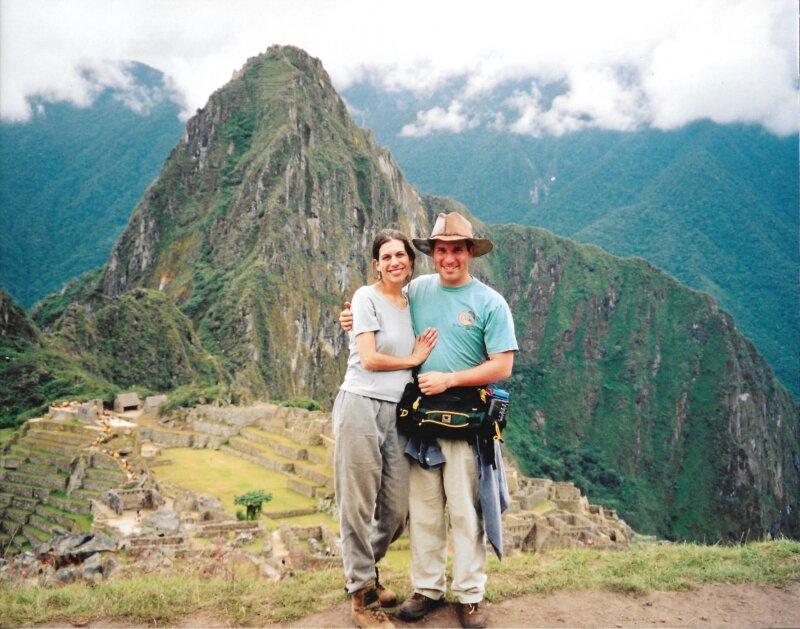
“My conclusion was that this was a great model,” she says. “It connected people with these relevant global issues. It was powerful for them to have an authentic experience with the environment and the people who called it home. It brought funds into these areas, incentivizing people in the community and decision-makers to conserve the forest.”
That first job led Dubin back to Duke, where she earned a Master of Environmental Management, Environmental Economics and Policy. It also opened doors to a new-found passion: ecotourism for young people.
“How powerful an experience would it be if we could offer students experiences and perspectives at that time in their lives,” she says. “We could educate a new generation, and, when they became adults, they could lead in a different way.”
As Program Director for the Children’s Environmental Trust Foundation International, Dubin developed workshops for middle and high school students to travel to the Amazon in Peru for a week. She worked with local communities, creating cultural opportunities, activities, and conservation challenges for young people. She even cut trails with a machete, doing “everything that needed to be done to get ready for students.”
Nonprofit co-founder
In 2003, Dubin co-founded Global Explorers, with a goal of inspiring responsible global citizenship among middle and high school students of all backgrounds. In developing countries around the world, she managed immersive experiences for young people, who were asked to return to their homes and make a difference locally. Through the years, Global Explorers evolved into a mid-sized nonprofit with programs on four continents, serving more than 500 students and families each year.
“As we grew, we wanted to provide experiences to young people who didn’t have access to these kinds of programs,” Dubin says. “We wanted to include the economically underserved and young people with physical disabilities.”
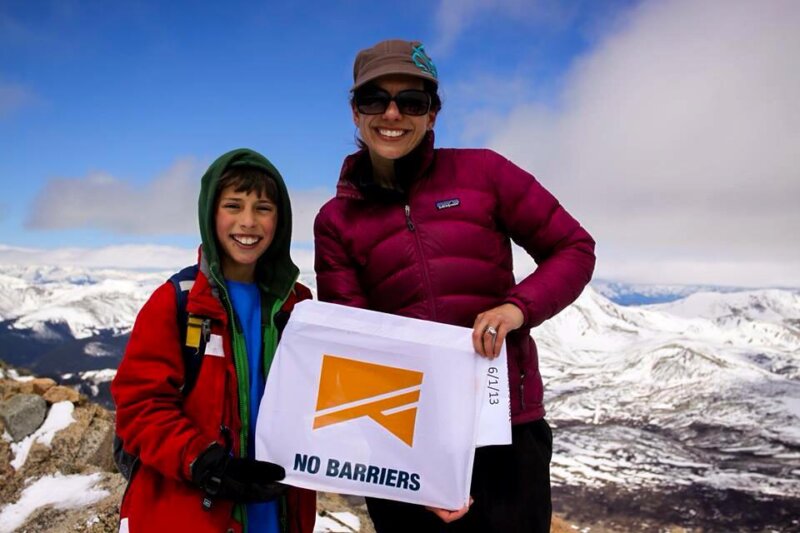
To serve that population, Global Explorers teamed up with Erik Weihenmayer’s organization No Barriers. Together, they led an expedition in Peru for students who were blind and visually impaired mixed with students who were sighted, an experience that Dubin describes as “powerful for everyone involved.” That early success would lead to a merger between the two organizations in 2011 with a new name: “No Barriers USA.”
By the time she had spent 16 years at Global Explorers and No Barriers, Dubin was ready to try something different. That’s how she ended up managing a family health practice just as the COVID-19 pandemic hit.
Getting into the business of health care is challenging under the best of circumstances. Getting into the business in January 2019—well, that was not for the faint of heart. When Julie Dubin’s husband had an opportunity to leave his family-owned medical practice, Dubin stepped in to maintain the business until it was sold—a short-term proposition, she thought. Then the pandemic hit and, with no medical background, she faced new challenges every day for more than three years.
“I really enjoy problem solving, and it was an excellent time for lots of problems to be solved,” she says. “It was also a perfect time to reflect on what I wanted to do next.”
Water steward
After years of inspiring students to think globally and act locally, Dubin felt it was her turn to do something on a local scale that addressed climate change. In her new position, which she started in July 2022, she is Executive Director of Peaks to People Water Fund. The nonprofit organization pairs donors who are also water users—individuals, businesses, municipalities—with land stewards who have the ability to make changes on their property and in forests to reduce the risk of severe wildfire and its impact on water.
“To me, water is such an essential part of our lives, our communities, and our businesses,” Dubin says. “I live in Northern Colorado and have seen the effects of the Cameron Peak fire in 2020 when the Poudre River ran with so much soil and soot that it was black.”
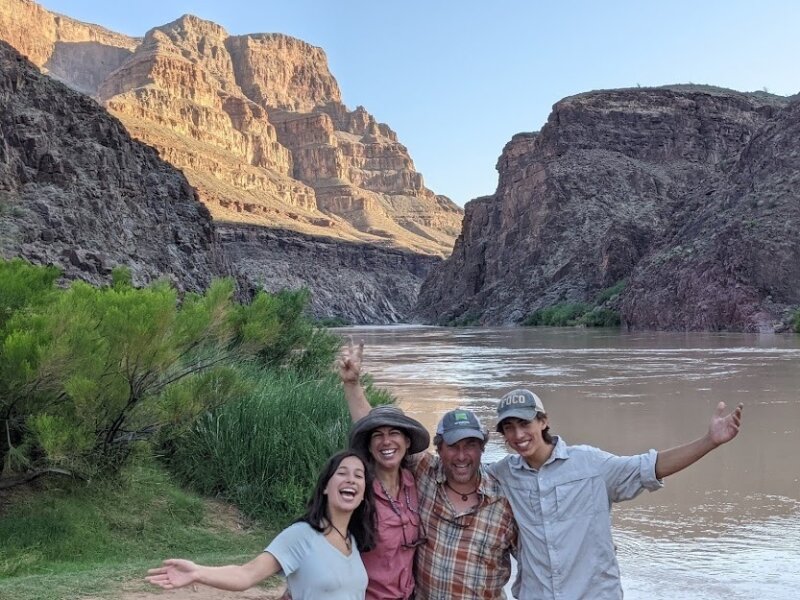
Nearly three decades after she guided ecotourists through the Amazon, she has come full circle—helping to connect people who have resources and care about important land and water issues with people on the ground who, with support, can take action locally.
Dubin believes all her many accomplishments grew from seeds that were planted during her time at CA, including a course she took called Global Issues “that just lit a fire under me.” Decades after she graduated, she still talks about the impact of her first field-based environmental experience during Junior Interim at Yosemite National Park.
“It absolutely inspired me to follow the trajectory I did,” she says. “I can’t say enough about how CA nurtured us to explore and think about the kind of impact I wanted to have in my life.”
To her, CA was a place where creative critical thinking was encouraged, and she has relied on those foundational skills throughout her life.
“When I come to a challenge, I have the ability and the confidence to work my way through it,” she says. “Whether in the classroom or on Interim, that was part of the educational culture at CA, and I really value that. It set me up for success.”
Another word Julie Dubin likes to use is “grateful.” She says she is grateful for amazing career opportunities and grateful for her full personal life as a wife and mother. And, she says, she is grateful for the education she had at CA, four years which she remembers as “magical.”
But then, she laughs, “Maybe everyone feels that way about the time they spent at CA.”

